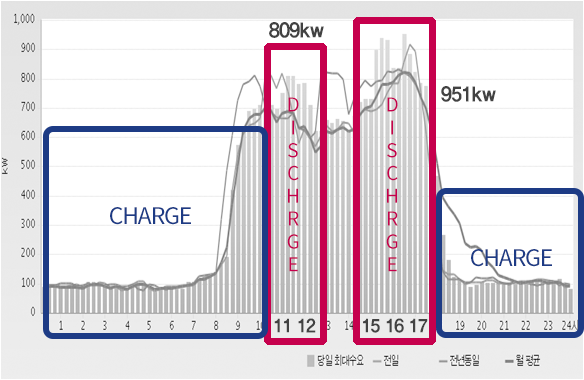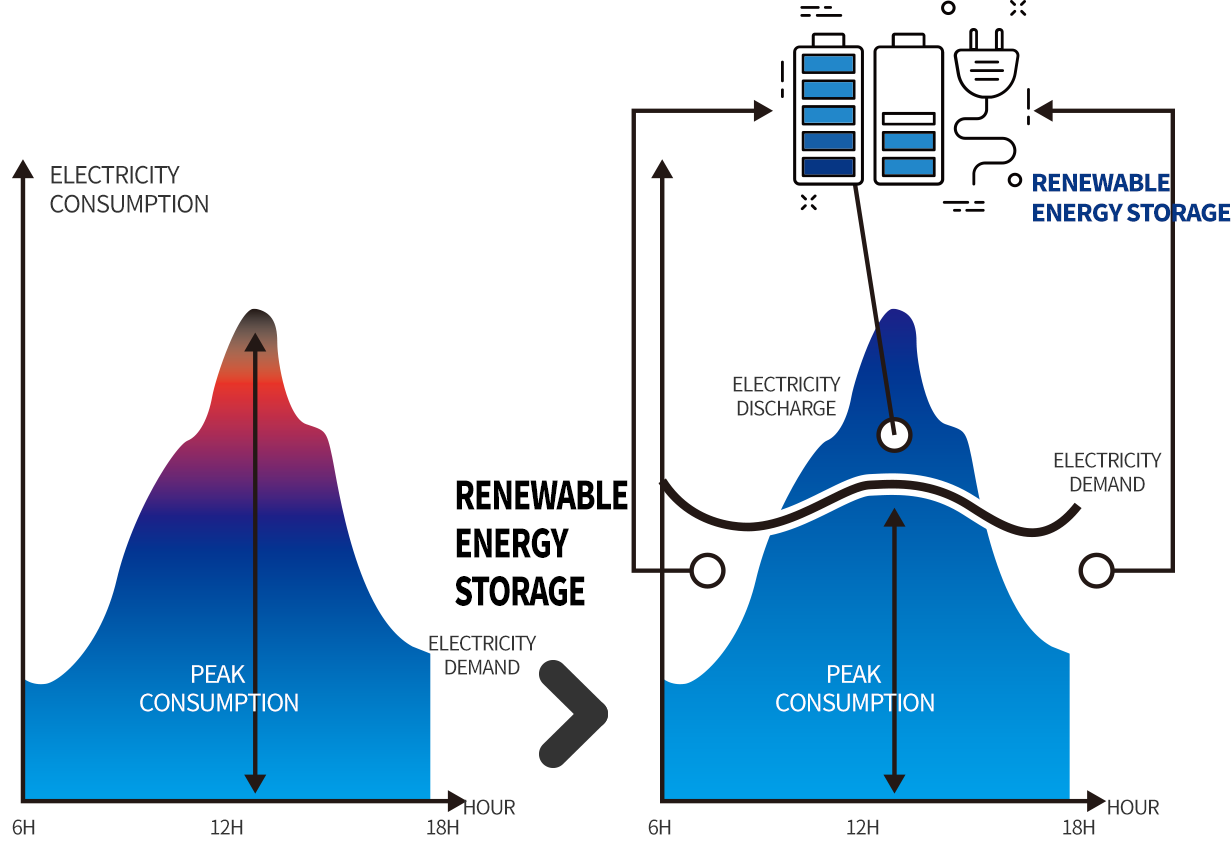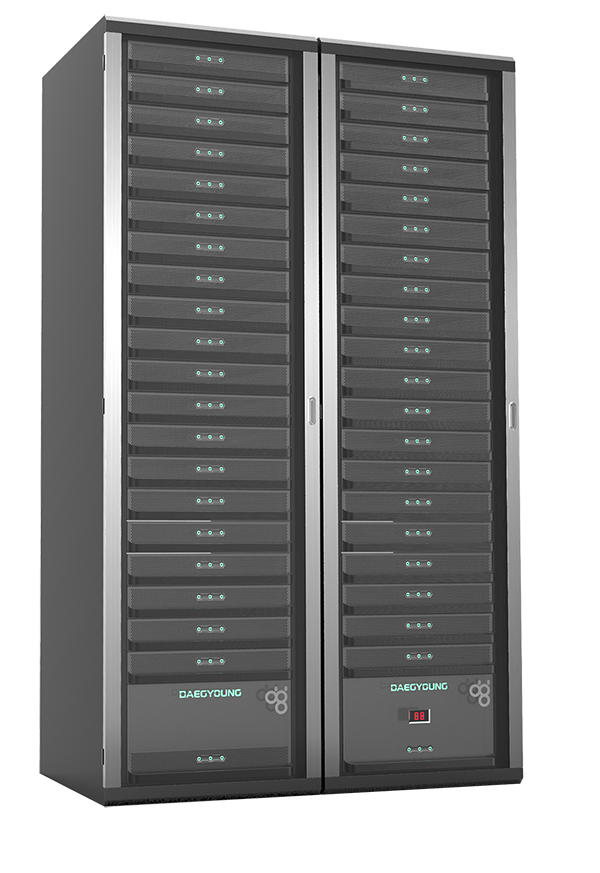
ESS
Energy Storage System
The ESS (Energy Storage System) was designed to improve energy efficiency by using power only when it is necessary after it has been stored. The ESS is an energy solution system for improving the quality of renewable energy and stabilizing power supply.
Business Components
Materialize smart grids for storing electricity that is generated from renewable energies, such as solar power, hydraulic power, wind power and
terrestrial energy, or through cheap midnight power and selling it when electricity supply and demand are high

Materialize economic and effective grids through storing cheap midnight power and managing energy consumption properly in order to control peak power use of companies

ESS Effect

Create revenues through efficient energy management by charging batteries through renewable
energies, such as solar power, hydraulic power, wind power and terrestrial energy, using cheap
midnight electricity
Can do effective generation business because power scheduling is possible due to the power
management system (PMS)
Can effectively expand the power market for all power companies and business people
by discharging batteries in the afternoon when power consumption is high

The ESS minimizes the power purchasing of grids by storing energy produced by PV during the day for people to use it whenever necessary.
Raise energy self-consumption and can reduce entire power rates
Secure stable and cheap power self-supply networks with renewable energy systems, including solar power, terrestrial heat, hydraulic power and wind power, in islands
where it is difficult to establish transmission networks
Can be used as alternative energy sources, during unexpected power failures
Battery

LFP is good in terms of safety and durability and has equal voltage.
Develop and produce LFP batteries with excellent stability based on our strong
ability to design batteries
Generating power, durability, low temperature properties
Secure high power generation and long durability through optimizing
composition of electrodes and electrolytic solutions
Excellent properties at a very low temperature
Equality
As high-capacity batteries are used after connecting many end cells in series
and rows, it is important to minimize variations between batteries.
Produce batteries with equal efficiency in terms of capacity, resistance and
durability, through production automation and strict process management
BMS
Divide operation and unusual conditions with independent
communication-controlling algorithms
Secure system stability by cell balance, tray balance and module balancing
Secure system stability by circuits for preventing inrush currents
Manage deep DOS and SOC with control algorithms optimized for LiFePo4
The best operation through connection solar energy control systems
